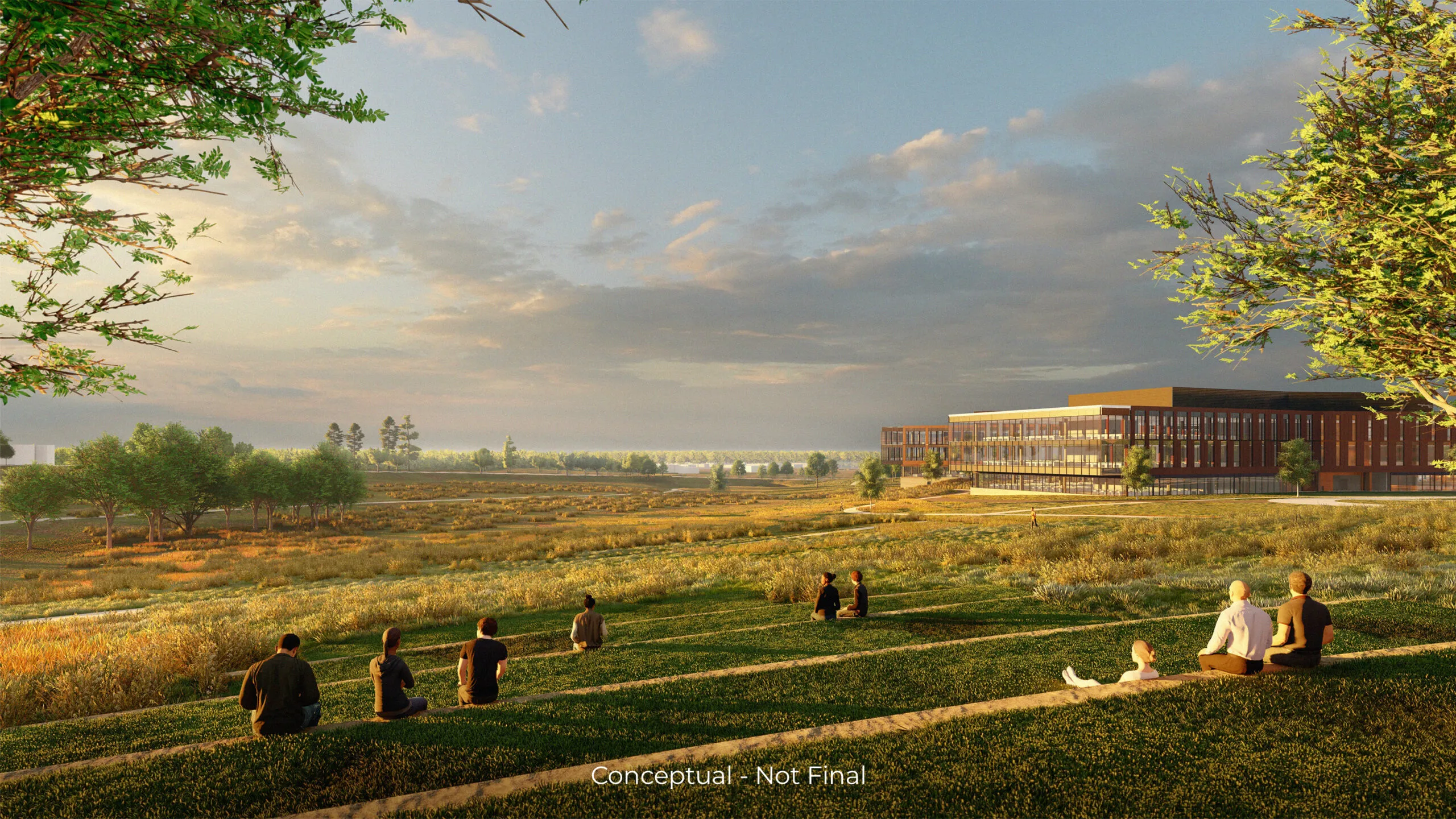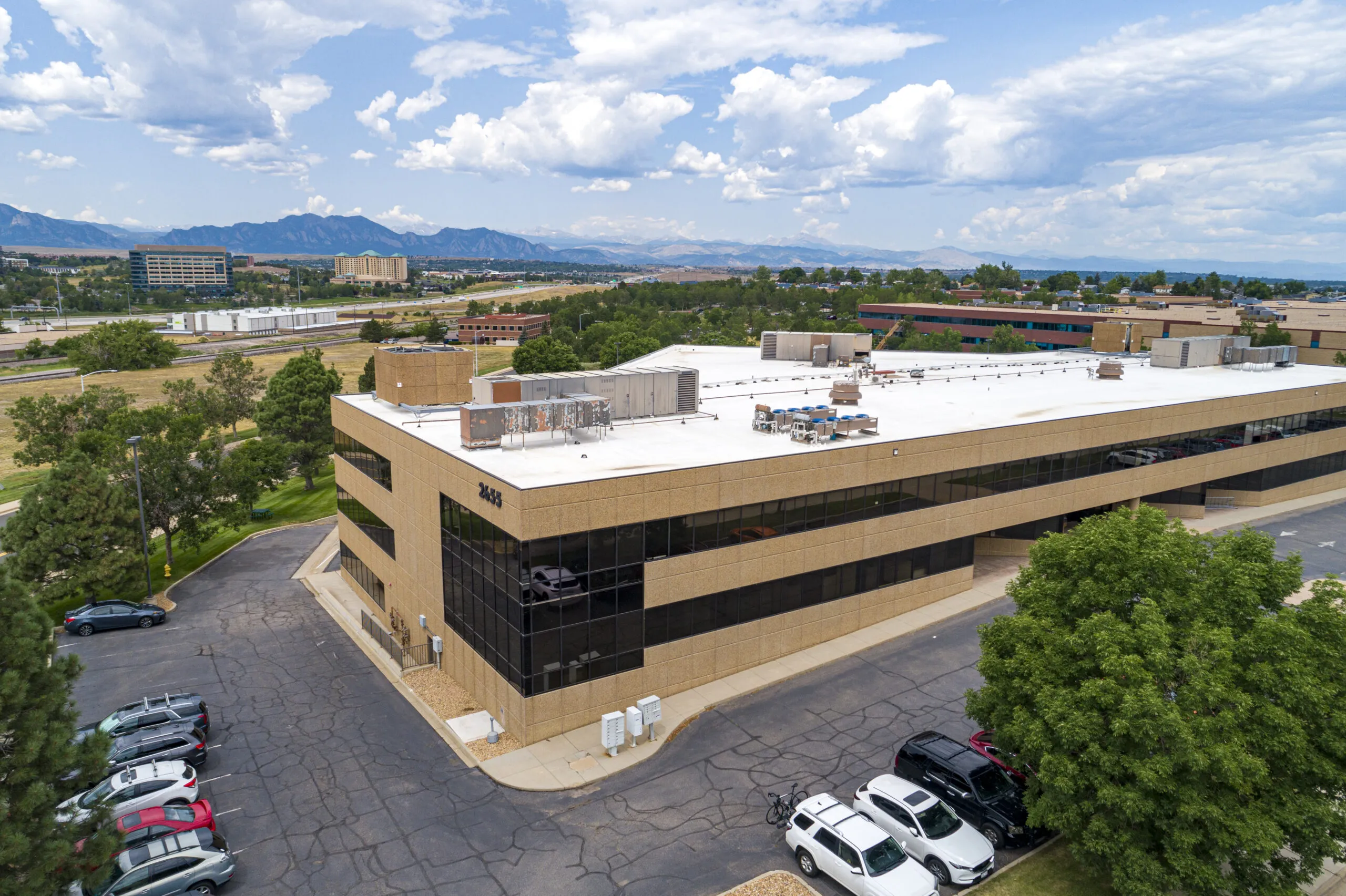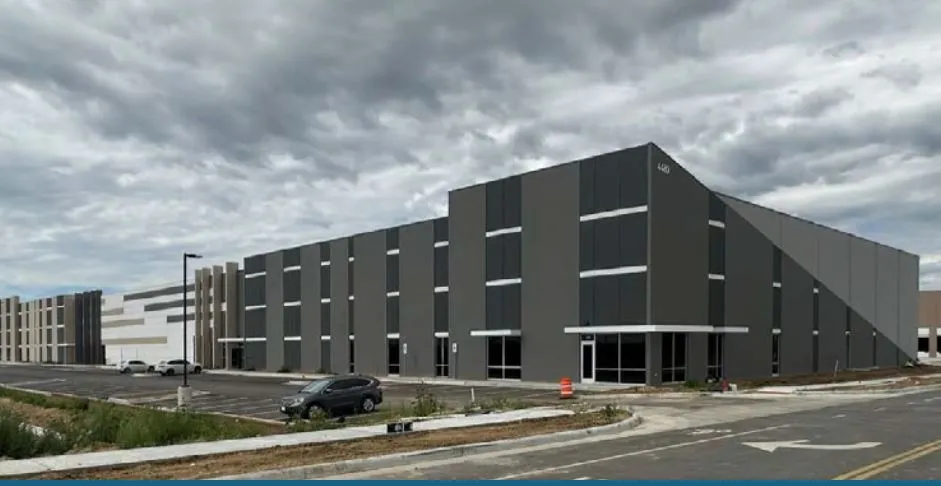Redtail Ridge moves step closer to groundbreaking
Vertical construction could begin in early 2025

LOUISVILLE — With the unanimous approval in late February of a preliminary plat for Redtail Ridge by the Louisville City Council, the years-long effort to turn a large, vacant property off U.S. Highway 36 into a biotechnology and health care mega-campus is one important step closer to becoming a reality.
“It’s nice to see all the hard work, the blood, sweat and lots of tears coming to fruition here,” Evan Pesonen, a vice president with Redtail developer Sterling Bay LLC, told BizWest.
Developers have had their sights set on building a business park on the roughly 300-acre property, which was previously home to a massive Storage Technology Corp. campus, for about four years, but the Louisville entitlements and approvals process has been a gauntlet.
SPONSORED CONTENT
Concerns from residents — mostly centering around flattening of the site, traffic, the size and location of public spaces, sustainability and economic viability — have nagged Redtail Ridge for years, culminating in a April 2022 special election in which Louisville voters repealed a previous approval of the project by city officials.
“When we purchased the site 20 or so months ago, our first order of business was … to ensure we were developing a plan that was responsive to what the community wanted: more open space, fewer commercial buildings, preservation of habitats,” Pesonen said.
Denver developer Brue Baukol Capital Partners LLC bought the property from Phillips 66 (NYSE: PSX) in 2020 for $34.93 million. As part of a July 2022 real estate transaction conducted by a series of holding companies, Sterling Bay acquired the property from Brue Baukol for just under $128 million, Boulder County warranty deeds show. Brue Baukol remains a minority partner in the development.
When Sterling Bay entered the picture, the developer added plans for flex-lab-office spaces aimed at biotechnology tenants, a red-hot subsector of the Boulder Valley commercial real estate scene in recent years. AdventHealth Avista also plans to build a new hospital on the site.
Avista has been under contract for about two years to buy about 40 acres on the Redtail site at the interchange of U.S. Highway 36 and Northwest Parkway, where it plans to relocate from its existing building at 100 Health Park Drive. The hospital, Pesonen said, will move forward with the land-purchase deal upon approval of Redtail’s final plat, which is expected to go before city officials this summer.
Hospital leaders have long said that Avista suffers from accessibility issues. The hospital’s vulnerabilities were highlighted during the Marshall Fire in late 2021.
The site is accessed only by Health Park Drive, which dead-ends at the hospital. Over the years, the hospital has been unsuccessful in securing a new interchange off of U.S. Highway 36. Poor access adds to the time required to reach the facility, making it difficult to attract new patients.
Additionally, Avista’s landlocked location does not offer opportunities to expand, hospital officials have said, with the community missing out on potential new services because the hospital has no room to grow. A new hospital at Redtail Ridge would provide Avista with a far larger market service area, putting it closer to a wider population base.
During a Feb. 6 Louisville City Council hearing on Redtail, Dan Enderson, a regional executive with AdventHealth, told city officials that he couldn’t guarantee that Avista would remain in Louisville if the Redtail project continued to languish in regulatory purgatory.
“We can’t wait any longer,” he said. “… “We had hoped to be well under construction by now.”
Bill Rigler, a spokesperson for the Redtail project, told BizWest that the pressure from Avista was perhaps “the lynchpin for people who were on the fence or inclined to not support the project in previous years. They understood that Avista was serious about staying in Louisville only with Redtail. I feel like that was a tidal change.”
Sterling Bay’s proposal for Redtail Ridge, which is expected to be built in phases over the next decade and includes about $25 million in public improvements from the developer, calls for a total of about 2.5 million square feet of commercial space, according to planning documents submitted to the city.
The first phase, set to be underway by 2026, would include 509,260 square feet of industrial space, 300,000 square feet of life-sciences space and 598,940 square feet of manufacturing practice-rated (GMP) space, according to the documents.
Phase 2, to be built by 2030, calls for another 118,800 square feet of industrial space; 90,000 square feet of office space; 264,000 square feet of research and development space; 14,000 square feet of retail; a 285,000 square-foot, 160-bed hospital (Avista); and 150,000 square feet of medical and dental office space, according to a land-use chart included in a planning memo.
The third phase, expected to wrap up around 2035, includes another 270,000 square feet of general office space.
Upon approval of the final plat, Sterling Bay plans to begin infrastructure and roadway improvements on the site. That work is expected to be completed prior to the start of building construction.
After the final plat is approved, Sterling Bay, Louisville planning staff and city officials will begin the planned-unit development review process, after which building construction can begin.
“It will probably be the beginning of next year when we’ll start going vertical,” Pesonen said.
LOUISVILLE — With the unanimous approval in late February of a preliminary plat for Redtail Ridge by the Louisville City Council, the years-long effort to turn a large, vacant property off U.S. Highway 36 into a biotechnology and health care mega-campus is one important step closer to becoming a reality.





